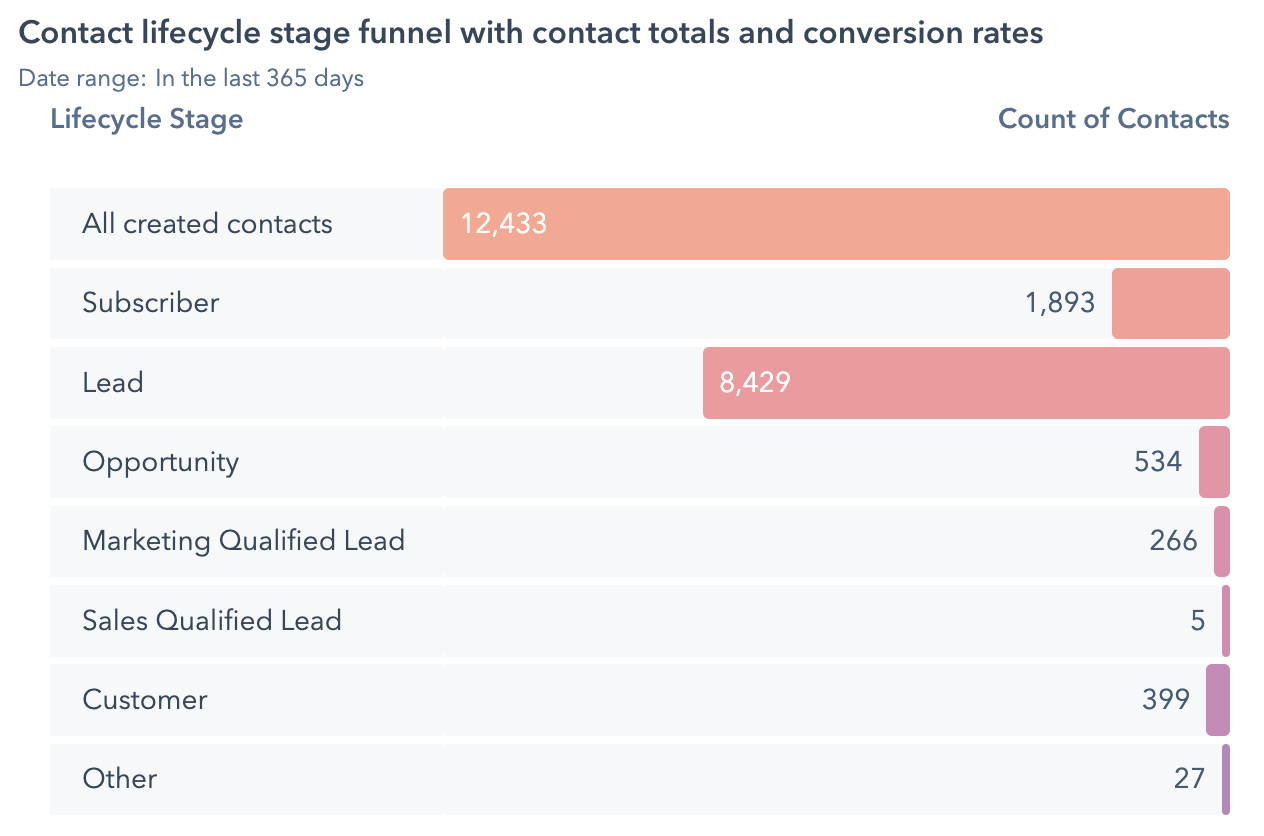4 min read
Yes, Your Firm Can Succeed on LinkedIn
How the impact of active participation can elevate your firm. Many managing partners and firm leaders are dismissive of social media, either relying...

David empowers firms to grow strategically by aligning innovation, insight, and execution. He leads WRC’s signature programs and advises firm leaders on M&A, digital growth, and leadership development.
Table of Contents
For accounting firms to prosper, it’s vital to invest in growth marketing and business development processes.
A regular flow of new clients is an indicator of a successful firm, but the strategies required to achieve sustained success today are markedly different from those of even just a few years ago.
When leveraging digital as a core strategic pillar, growth will be locked in with the right infrastructure.
The right infrastructure for marketing qualified leads (MQLs) will ensure that you monitor who is on your site and how they behave. This data is then used to drive the lead nurturing process.
Not all leads that come to your firm are created equal. An incoming request for a proposal from the CFO of a $100 million company should be treated entirely differently than an individual looking for tax filing.
Let’s go over what a marketing qualified lead is and explore the strategies your accounting firm can adopt to more effectively qualify and convert more prospects.
Before we get into how you can optimize your marketing efforts to effectively categorize and convert MQLs, it’s important to first understand exactly what an MQL is.
Here’s a definition:
A Marketing Qualified Lead (MQL) is a prospective client who is not yet ready to buy but has exhibited behaviors that align with your ideal client profile (ICP). An MQL meets your marketing team’s criteria, earning enough scores based on behaviors to merit nurturing or follow up.
Note: MQL is one of many definitions used to describe people who are engaging with your brand. Your firm’s marketing leadership should have clear, thoughtful descriptions for engagement of all kinds, including Leads, Subscribers, MQLs, Opportunities, Sales Accepted Leads, and Sales Qualified Leads (SQLs).
How do you determine who is an MQL and who isn’t?
The criteria you set for this kind of lead scoring and delineation is entirely your own, but will follow your ideal client profile definitions. A key consideration as you craft lead scoring metrics is to ensure you can in fact capture the data you want to use to qualify leads. This is only achievable through website tools for gathering behavior/action data and through forms that capture data points submitted by the user.
Your ideal client profile, as it relates to MQLs, will have parameters like these:
A great source of additional ideas is your sales team. Lead scoring is often best performed as a joint exercise between marketing and sales. In an ideal world, MQLs turn into SQLs which turn into won business.
Let’s put this in context of a recent Winding River Consulting project for a client where we used MQLs to advance clarity.
One of our clients has a nonprofit vertical that serves dentist practices and is aiming to expand that section of the practice nationally. After some market research, they identified a blue ocean opportunity to increase visibility by sponsoring an industry event. As a sponsor, they gained access to the entire attendee list. This was then leveraged by content created purposefully for that intended audience (LinkedIn posts, email marketing, and lead magnets, as well as a webinar). The result? 55+ downloads and 30+ webinar attendees, which placed 30 marketing qualified leads into their pipeline.
By qualifying leads, a marketing team can focus resources on prospects that are most likely to convert. This reduces the waste of time spent on insignificant leads who don’t have serious purchase intentions. It’s a sophisticated tactic that helps firms close the gap between digital spend and performance.
Qualifying leads also enables firms to take a more proactive approach to business development. By adopting MQL strategies, firms can identify the right services for prospects based on interactions. With this information, firms can reach out with a tailored proposal that addresses the prospect’s pain points.
Marketing Qualified Leads are often used as a precursor to Sales Qualified Leads (SQLs). It will be important for every firm to self-evaluate its readiness to implement MQLs and SQLs, and the decision is largely determined by the maturity of your digital strategy and capacity and capabilities of your teams.
An SQL is the next stage of the funnel from an MQL. SQLs have expressed interest in your firm’s services and are interested in exploring them more deeply. At this stage, they are ready to be pursued by business development, a practice leader, or a partner.
To become an SQL, a prospect must be meet criteria set by the sales team. This may mean someone who subscribes to a monthly newsletter or weekly podcast, is a member of a private Facebook group, visits the website 3-5 times a month, and has a business that ticks all the ICP boxes.
Once the sales team has qualified the lead, the focus shifts to closing them as a new client.
The only way to make MQLs a useful strategy is to capture data then shape follow-up messaging accordingly.
HubSpot is a great tool for that, but many CMS/CRM integrations are capable of handling lead scoring and automatically rating leads based on defined metrics.
Here is an example of what the lifecycle stage funnel tracking looks like in HubSpot:

Realtime data is what feeds a bigger inbound machine, enabling your marketers to do things like:
Automate responses with custom messaging for an audience segment
Reach out with open-ended questions based on what a site visitor has interacted with
Revisit strategies and continuously refine the process
The goal of all of this is to get to a place of such precision that you can know with fair certainty that if a site visitor does X + Y, their likelihood of conversion is Z%. This level of insight can be fed back into your strategy, making it more and more effective.
Now that we understand what an MQL is, how marketing/BD uses it, and what importance it has for MPS, let’s look at how to nurture MQLs with the goal of determining whether they are sales ready or not.
A lead nurturing campaign is a marketing campaign that pushes relevant, timely information to leads, gently nudging them further down your buyer’s journey until they reach a point where they are ready to initiate a conversation with your business development team, practice leader, or POC.
No two accounting firms will have the same lead nurturing campaign. An effective lead nurturing campaign should share your firm’s perspective on issues that affect potential clients and highlight the unique value your firm offers.
Here is a simplified example of a lead nurturing campaign for an accounting firm:
NOTE: Ensure assignment selling / key content is presented to the prospect
NOTE: If your firm is using marketing automation, it can often leverage engagement, views, clicks, reads, and more for lead scoring.
At this point, the marketing team has done its job and has successfully nurtured this lead. The prospect is now an MQL and can be passed to the next players, which may be your sales team, business development, or another contact. They’ll initiate a conversation to learn more about how your firm can support the lead.
Lead nurturing campaigns are a marketing activity that offers the potential for extremely high returns on investment. They enable your firm to remain top of mind for prospects throughout the year and cast your partners as leading experts in the areas you have chosen to focus on.
There are two outcomes of a successful buyer’s journey that leverages MQL status and lead nurturing:
The nurturing process can take weeks, months, or even years, but it is the surest way to see ongoing results.
Creating a growth marketing strategy for your accounting firm is imperative for carving a sustainable path toward continued success. However, techniques including lead qualification and lead nurturing are relatively advanced marketing strategies that require elite understanding and focused execution.
If you’re unsure where to start to build an effective lead nurturing campaign, the team at Winding River Consulting can help.
With a team of experienced accounting industry leaders and innovative growth marketers, Winding River Consulting is well-equipped to uplevel your firm’s long-term growth strategy.
Contact us today to learn more.

4 min read
How the impact of active participation can elevate your firm. Many managing partners and firm leaders are dismissive of social media, either relying...

2 min read
As the accounting industry navigates a worsening talent shortage, many forward-thinking firms are redefining their approach to talent management. To...

6 min read
There are three major disruptors currently occurring in the evolution of professional services marketing. First is the acknowledgement that...